Related Research Articles

A diplomatic mission or foreign mission is a group of people from a state or organization present in another state to represent the sending state or organization officially in the receiving or host state. In practice, the phrase usually denotes an embassy or high commission, which is the main office of a country's diplomatic representatives to another country; it is usually, but not necessarily, based in the receiving state's capital city. Consulates, on the other hand, are smaller diplomatic missions that are normally located in major cities of the receiving state. As well as being a diplomatic mission to the country in which it is situated, an embassy may also be a nonresident permanent mission to one or more other countries.
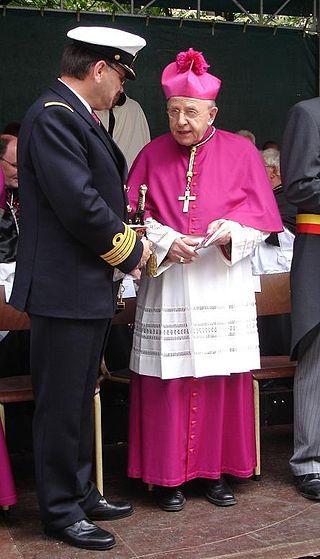
An apostolic nuncio is an ecclesiastical diplomat, serving as an envoy or a permanent diplomatic representative of the Holy See to a state or to an international organization. A nuncio is appointed by and represents the Holy See, and is the head of the diplomatic mission, called an apostolic nunciature, which is the equivalent of an embassy. The Holy See is legally distinct from the Vatican City or the Catholic Church. In modern times, a nuncio is usually an archbishop.

Turkmenistan's declaration of "permanent neutrality" was formally recognized by the United Nations in 1995. Former President Niyazov stated that the neutrality would prevent Turkmenistan from participating in multi-national defense organizations, but allows military assistance. Its neutral foreign policy has an important place in the country's constitution. Although the Government of Turkmenistan claims to favour trade with and export to the United States, and Turkey, its single largest commercial partner is China, which buys the vast bulk of Turkmen natural gas via the Central Asia–China gas pipeline. Turkmenistan has significant commercial relationships with Russia and Iran and growing cross-border trade with Afghanistan. The Government of Turkmenistan often appears to use the conflicting interests of these regional powers as a means to extract concessions, especially on energy issues.
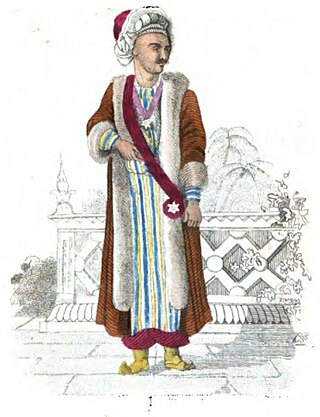
An ambassador is an official envoy, especially a high-ranking diplomat who represents a state and is usually accredited to another sovereign state or to an international organization as the resident representative of their own government or sovereign or appointed for a special and often temporary diplomatic assignment. The word is also used informally for people who are known, without national appointment, to represent certain professions, activities, and fields of endeavor, such as sales.

An apostolic nunciature is a top-level diplomatic mission of the Holy See that is equivalent to an embassy. However, it neither issues visas nor has consulates.
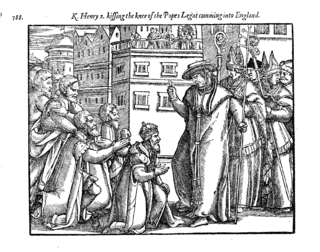
A papal legate or apostolic legate is a personal representative of the Pope to foreign nations, to some part other of the Catholic Church, or representatives of the state or monarchy. He is empowered on matters of Catholic faith and for the settlement of ecclesiastical matters.
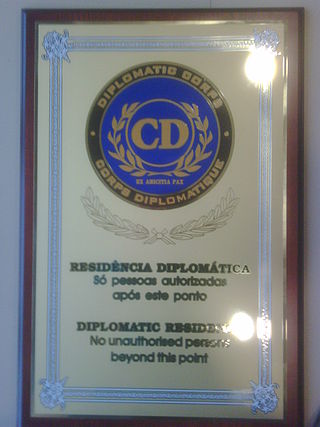
The diplomatic corps is the collective body of foreign diplomats accredited to a particular country or body.
Diplomatic rank is a system of professional and social rank used in the world of diplomacy and international relations. A diplomat's rank determines many ceremonial details, such as the order of precedence at official processions, table seatings at state dinners, the person to whom diplomatic credentials should be presented, and the title by which the diplomat should be addressed.

EUCLID, also called Pôle Universitaire Euclide or Euclid University, is an international intergovernmental organization with a university charter established in 2008. It has official headquarters in The Gambia and in the Central African Republic, but also maintains an executive office in Washington, D.C. Its primary mandate is to train officials for its Participating States but its programs are also offered to the general public. The institution's current Secretary-General is Winston Dookeran.
The Holy See has long been recognised as a subject of international law and as an active participant in international relations. One observer has stated that its interaction with the world has, in the period since World War II, been at its highest level ever. It is distinct from the city-state of the Vatican City, over which the Holy See has "full ownership, exclusive dominion, and sovereign authority and jurisdiction".
A permanent representative to the United Nations is the head of a country's diplomatic mission to the United Nations.
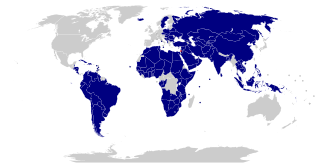
The foreign relations of the State of Palestine have been conducted since the establishment of the Palestine Liberation Organization (PLO) in 1964. In November 1988, the PLO's Palestinian National Council declared the independence of the State of Palestine and in 1994 the PLO established the Palestinian National Authority (PNA) following the Oslo Accords. The PLO Executive Committee performs the functions of the government of the State of Palestine. Currently, the PLO maintains a network of offices in foreign countries and also represents the PNA abroad.
The Republic of Singapore officially became the 117th member of the United Nations (UN) after its independence on August 9, 1965. From 2001 to 2002, Singapore held a rotational seat on the United Nations Security Council and has participated in UN peacekeeping/observer missions in Kuwait, Angola, Kenya, Cambodia and Timor Leste.

The Ambassador Permanent Representative of Spain to the United Nations is an official of the Government of Spain belonging to the diplomatic corps representing Spain before the United Nations (UN) based in New York City, United States. This permanent representation, unlike the Permanent Representation of Spain to the European Union, does not have its own legislation and is regulated by the general regulations governing diplomatic missions, by international law and by the internal law of the UN.
References
- ↑ "Vienna Convention on the Representation of States in their Relations with International Organizations" (PDF). UN Office of Legal Affairs. United Nations. 1975. Archived (PDF) from the original on November 26, 2022. Retrieved September 27, 2017.
- 1 2 Berridge, G.R.; Lloyd, Lorna (2012). The Palgrave Macmillan Dictionary of Diplomacy, Third Edition. New York: Palgrave Macmillan. ISBN 978-0-230-30299-0.
- ↑ "Nuncio". New Advent Catholic Encyclopedia. New Advent. 2017. Archived from the original on April 18, 2021. Retrieved September 27, 2017.
- ↑ "Directory of Permanent Delegations and Permanent Observer Missions to UNESCO". UNESCO. 2017. Archived from the original on July 31, 2020. Retrieved September 27, 2017.